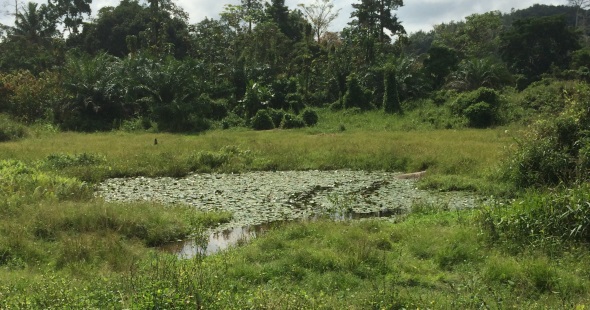Rapid tests for schistosomiasis control & elimination

What is this project?
This project focuses on the development of sensitive rapid diagnostic tests (RDTs) for schistosomiasis that can support national control and elimination programmes in countries where the disease is regularly found. The current focus is on RDTs that detect circulating anodic antigens (CAA).
Why are we working on it?
CAA is secreted by all species of schistosomes that are of public health importance, making it a particularly suitable target for schistosomiasis diagnostics. A laboratory-based test for CAA is available; however, in order to achieve optimal sensitivity, the test requires complex sample processing steps and a reader for detection.
This project aims to bring CAA testing out of the laboratory and into community settings, by developing it into an RDT.
As well as helping to find and link individual patients to care, RDTs for schistosomiasis are needed for essential surveillance and disease tracking, so that mass drug administration programmes can be appropriately targeted and their impact measured.
What does it involve?
Two RDTs to detect CAA in blood and/or urine are being developed. One is designed to support ongoing schistosomiasis control programmes, by providing data to estimate prevalence and intensity of infection, supporting the update of guidelines on routine use of RDTs for schistosomiasis. The other one will have a higher sensitivity, and will support elimination efforts by identifying individuals with low levels of infection.
What do we expect to achieve?
RDTs for CAA are expected to be key to supporting national schistosomiasis control and elimination programmes in low- and middle-income countries, primarily due to their ease of use and suitability for resource-limited settings.
What is the timescale?
Activities are planned to run for 4 years, between 2018 and 2022.
Partners and funding
FIND is leading a consortium that includes WHO, Global Access Diagnostics (GADx) (formerly Mologic) and Leiden University Medical Center (LUMC).
Ongoing work streams are being supported with catalytic funding from the Global Health Innovative Technology Fund, the Bill & Melinda Gates Foundation, and Merck (through their Global Health Institute). This complements support from UK aid from the British people and the Swiss Agency for Development and Cooperation (SDC).
More information
For more information please contact us.
Quick links

